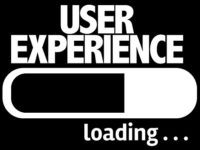Whilst Bitcoin, Ether and a host of other cryptocurrencies have grabbed the fanfare, it is the underlying blockchain technology that has many people excited. In particular, smart contracts that use blockchain technology present an opportunity to create efficiencies in so many businesses, with the potential to be more disruptive than Bitcoin.
But what is a smart contract? Blockgeeks define smart contracts as instruments that help users exchange money, property, shares, or anything of value in a transparent, conflict-free way while avoiding the services of a middleman. “Avoiding the services of a middleman” is especially important to understand as it will give you an idea of where smart contracts might disrupt.
Before getting too excited though or thinking that “all smart contracts will replace lawyers”, we have yet to see any widespread use cases for them at this stage. But we can draw links to the obvious situations where smart contracts may disrupt an industry, as well as throw some left-field instances in a couple of the examples.
Contract Enforcement
Perhaps the most obvious use is the enforcement of contracts. For example, executing and resolving property sale contracts and then waiting for the transaction to be processed is quite cumbersome. Smart contracts that record and process the transaction using blockchain technology could significantly reduce this time to just minutes. The title of course would then also be recorded on a worldwide ledger.
Other similar use cases would include powers of attorney, mortgages, company resolutions, minutes and reports.
Supply Chain
Small businesses in Australia wanting to access a global marketplace face problems and inefficiencies with getting their products delivered. Enter a company like Yojee, who use smart contracts to enable small businesses to reliably access a network of carriers across the Asia-Pacific region.
Royalty Distribution
If you’re a graphic designer or photographer (or even if you purchase royalty-based artwork or images for your business), then a smart contract may well change the way you operate. Instead of having a fee for the commercial use of the asset, a smart contract could be tailored between the two parties. Having this contract on a decentralised ledger would also mean that it’s easy to identify whether the asset has been used in accordance with the contract’s conditions.
Business Financing
Getting finance as a small business can be tough. Your approval is based on a credit score that many borrowers do not know how to access and the whole process is far from transparent. This is where smart contracts could help your small business. Your credit scores could be recorded on the blockchain, but accessible to you and whoever you give access to via a smart contract. This information would be free from interference or censorship.
Peer-to-Peer Transactions
This is perhaps the most exciting use for blockchain. It provides a real opportunity to drive a true global economy. With around 2 billion “unbanked” people around the globe who are unable to transact online, they can enter the gig economy and become a global consumer through blockchain technology.
Aside from that, any business that rents or hires basic everyday products should also take heed. For example, if I need to rent a car trailer, I could enter into a smart contract with an owner who is not currently using their trailer, bypassing an equipment rental business entirely.
Not every technological development disrupts the way we do business. However, both blockchain technology and smart contracts are developments that I would encourage any business owner to brush up on and at least understand how they could potentially be used in their business.
Quentin Aisbett, Digital Strategist, OnQ Marketing















